|
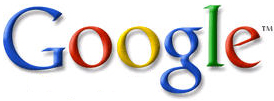
|
|

Google Co-Founders Larry Page and Sergey
Brin |
|
|
|
|
Google is so sure of itself that it
puts the "I'm Feeling Lucky" button
right next to the Search button...
if you click it, Google skips the
standard search results page and
brings you directly to the number
one match to your query. |
|
|
Most relevant results are at the top of the
page |
 Capitalization doesn't matter in Google
Capitalization doesn't matter in Google |
 Order of words in search box DOES matter...
first words most important
Order of words in search box DOES matter...
first words most important |
Google assumes "and" is between two keywords |
 To search for websites that have either one
word or another, type an
OR between
your two keywords
To search for websites that have either one
word or another, type an
OR between
your two keywords |
Use
+
(with no space after it) to include a word
in your search |
|
Use
-
(with no space
after it) to exclude a word in your search |
 Use
~
(with no space
after it) to include synonyms in your search
Use
~
(with no space
after it) to include synonyms in your search |
|
Google automatically returns variations of
your search words like plurals and other
forms (for example educator, educators) |
 To search for an exact phrase, put the
phrase in
"quotation
marks"
To search for an exact phrase, put the
phrase in
"quotation
marks" |
|
 On the very last search results page, Google
will display this message that it omits
duplicate results. If you feel the need to
see ALL, click the link "repeat the search
with the omitted results included.
On the very last search results page, Google
will display this message that it omits
duplicate results. If you feel the need to
see ALL, click the link "repeat the search
with the omitted results included. |
 To search for specific file types use the
filetype:
operator. For example, if you are looking
for Microsoft Word documents on lesson plans
in the Search box type
To search for specific file types use the
filetype:
operator. For example, if you are looking
for Microsoft Word documents on lesson plans
in the Search box type
lesson plans
filetype:doc |
To search within a specific website you can
use the site:
operator. For example, if you want to search
the Education World website for lesson plans
you would type
lesson plans
site:www.educationworld.com |
|
To search for something in the title of a
webpage only, use the
intitle: operator. For
example, if you are looking for pages with
the word SmartBoard in the title, you should
type
intitle:smartboard |
 To
search for something in the URL (web
address), use the
inurl: operator. For example if
you are looking for webpages with the word
"technology" in the URL, you should type
inurl:technology To
search for something in the URL (web
address), use the
inurl: operator. For example if
you are looking for webpages with the word
"technology" in the URL, you should type
inurl:technology |
|
To search for something in the text of a
webpage use the
intext: or the
allintext:
operator. Use
intext: with single words, or if
you have more than one word, use
allintext: |
 Google accepts up to
32 keywords
Google accepts up to
32 keywords |
 If you want to see your keywords highlighted
within the website, click on the
Cached link
under the Page excerpt.
If you want to see your keywords highlighted
within the website, click on the
Cached link
under the Page excerpt.
|
|
|
|
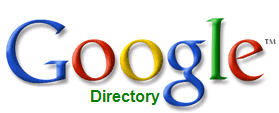
The difference
between Google Search Index and Google
Directory is people.
|
|
 |
|
Six
ways to search for people in Google
Phonebook:
These listings may not be
up-to-date... cannot access non-published
numbers. |
 First name (or initial), last name, city
First name (or initial), last name, city
|
First name (or initial), last name, state
|
 First name (or
initial), last name, city, state First name (or
initial), last name, city, state |
First name (or
initial), last name, ZIP code |
|
Last name, city, state |
 Last name, ZIP code
Last name, ZIP code |
|
Results of a
Google Phonebook Search also has links to
Google Maps, Yahoo! Maps, and MapQuest. |
|
|
|
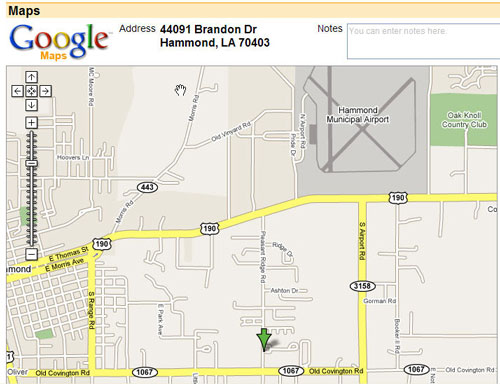 |
 If you have a phone number and you want to
look up who it belongs to, just type in the
number in the Search field. You can also use
the phonebook:
operator in front of the number ....
rphonebook:
for residential numbers, and
bphonebook:
for business numbers.
If you have a phone number and you want to
look up who it belongs to, just type in the
number in the Search field. You can also use
the phonebook:
operator in front of the number ....
rphonebook:
for residential numbers, and
bphonebook:
for business numbers. |
 Google yourself
- put your name in
quotation marks... see what kind
of information is on the web about you. Google yourself
- put your name in
quotation marks... see what kind
of information is on the web about you.
|
|
Explore
Google Advanced Search,
Preferences,
Images,
Video
and News.
Sign-in and create your own Google Account
to use in personalizing Google features.
|
|
 |
|
To look up
definitions, use a "what is..." search. For
example, if you want the definition of the
word "pixel", type
what is pixel in the search
field.
|
|
Click the link
in the statistics bar and it will bring up a
full definitions at
Answers.com
|
 You can also use
the define:
operator to access the Google Glossary...
type define:
in front of the word that you want the
definition for (no space). If you need
the definition of a phrase, put quotation
marks around the phrase. You can also use
the define:
operator to access the Google Glossary...
type define:
in front of the word that you want the
definition for (no space). If you need
the definition of a phrase, put quotation
marks around the phrase.
|
|
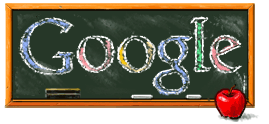
|
Fact-based information can be found by
typing in the correct query into the Search
field. For example, to find where President
Bush was born, type
birthplace george w. bush or
when did Elvis die
|
|
|
|
To find out the weather of any location,
just type in the keyword
weather,
followed by the location as a city name,
city plus state, or ZIP code. For example,
weather New Orleans
|
|
To find out the weather of any airport, just
type in the
airport's three-letter code
followed by the word
airport. (To find the code for
airports go to
www.world-airport-codes.com )

|
|
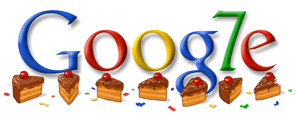
|
Google can look up all kinds of numbers for
you... FedEx tracking numbers; US Postal
Service tracking numbers; UPS tracking
numbers; UPC bar codes; Area codes; Vehicle
ID Numbers; FAA airplane registrations
numbers; Patent numbers. Just type in the
number itself.
|
|
|
|
To find movie
reviews and showtimes, type in the word
movies
followed by the name of the movie.

|
|
|
|
Google helps you search for musicians by
just typing in their name. You will be given
a visual list of the performers albums, with
tracks, reviews, and links to download
music from online music stores.
|
|

Translate text
and webpages from one language to another.
|
|
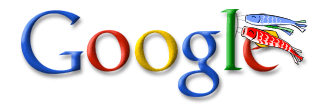
|
|
Using Google as a Calculator is as easy as
typing in your equation or formula into the
search field and then clicking the Google
Search button. The answer is displayed on
the search results page. |
|
For addition, you can use
+
or
plus or
and |
 For
subtraction, you can use
-
or
minus For
subtraction, you can use
-
or
minus |
|
For
multiplication, you can use
X or
x or
times |
 For division,
you can use
/
or
over
or
divided by For division,
you can use
/
or
over
or
divided by |
|
Click this link to learn all about the
Google Calculator. |
|
Google can also convert from one unit of
measurement to another. Start with the first
measure, followed by the word "in" followed
by the second unit of measurement. Google
knows lots of different kinds of
measurements, see some examples below... |
 1 cup in teaspoons
1 cup in teaspoons |
1 meter in feet |
 1 dollar in euros
1 dollar in euros |
72 degrees Fahrenheit in Celsius |
|
50 pounds in kilograms |
 56 years in seconds
56 years in seconds |
|
2007 in Roman numerals |
 70 mph in kph
70 mph in kph |
|
|
|
|
Google is
working to create a legendary global book
repository... every book ever published,
available for searching online, from your
web browser. A major undertaking indeed!
This has created a controversy between
libraries and publishers. Search results
from Google Book Search will give you one of
these four results: |
 Full View
- full text of a book is available for
reading online. Full View
- full text of a book is available for
reading online. |
Limited Preview
- only a limited number of pages are
available to read online, as a preview to
the rest of the book. |
 Snippet View
- these books only offer a few small
snippets of text for preview. Snippet View
- these books only offer a few small
snippets of text for preview. |
No Preview
Available - no previews or
snippets available at all. |
|
|
 |
|
To display a map
of a given location, all you have to do is
enter information about the location in the
search field. Google address formats could
be: |
 city, state
city, state |
zip |
landmarks |
 address, city, state
address, city, state |
address, city, zip |
|
street intersection, city, state |
 airport code
airport code |
 institutions
institutions |
 street intersection, zip
street intersection, zip |
latitude, longitude |
|
This
navigation tool found at the top left of
every Google Map will allow the viewer to
move around on the map as well as zoom in
and out.

You can share
your Google Maps by printing, Emailing, or
saving the link to the map... just click one
of these three links in the top right hand
corner to share your map. |

These three
buttons at the top right hand corner of
every Google Map help you see three kinds of
maps. The Map
button shows street maps, the
Satellite
button shows satellite imagery of the area,
and Hybrid
shows street maps superimposed on top of the
satellite imagery.
|
|
|
|
 Take the Google Calendar Tour
Take the Google Calendar Tour |
Must sign-in and
register with Google |
 Can create
public calendar for organizations or
companies or private calendars Can create
public calendar for organizations or
companies or private calendars |
Can create
multiple calendars - personal, public,
friends, and holidays |
|
Can import from Outlook |
 Integrates with Gmail
Integrates with Gmail |
|
|
|
|
Google Notebook
is a web-based application that allows you
to create a "notebook" to help organize all
your Internet based research on a given
topic. |
 Must be signed in to Google to access your
Notebook.
Must be signed in to Google to access your
Notebook.
You can save
text, images, and links in your Notebook. |
Download the
notebook browser extension to put your
notebook icon on Internet windows. This
allows you to access your Google Notebook
from anywhere online.

|
|
|
|
|
|
 Latest version is 4.0
Latest version is 4.0 |
Zoom in and tilt up and down , fly bys,
|
 3D buildings and terrain, lots of layers to
choose from
3D buildings and terrain, lots of layers to
choose from |
Latitude and Longitude |
|
|

 |
|
Google Scholar
enables you to search a database of
scholarly journals and articles free of
charge. This is sometimes referred to as "Schoogle."
This is a free alternative to subscription
databases like Gale Group or EBSCO. The
advantage of using "Schoogle instead of a
normal Google search is that it focuses
entirely on scholarly literature and returns
entries in a format that is familiar to
students and scholars. You can find
academically appropriate and peer-reviewed
literature. |
|
|
|
|
Search for any ingredient or
cuisine and the word
recipes
|
|

|
Google for
Educators gives a great list of teacher's
guides for some of Google's more popular
tools. You'll also find videos and lesson
ideas for using these tools in the
classroom.
|
|
|
 Must be signed in with your Google account
Must be signed in with your Google account |
Upload Word or Excel files or create new
docs and spreadsheets online |
 Edit online
Edit online |
Collaborate with others to edit your files
online |
|
You can see the files' version histories and
you can roll back to earlier versions |
 Download the final versions as .doc, .rtf,
.pdf, .html
Download the final versions as .doc, .rtf,
.pdf, .html |
|
|
All Google Logos
are downloaded from
www.google.com |
|
This page was
last updated on
Wednesday, May 02, 2024. |